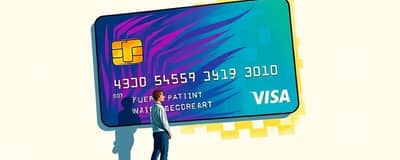Traveling internationally often brings excitement and discovery, but hidden fees can turn your adventure into an expensive ordeal. By understanding how foreign transaction fees work and adopting smart strategies, you can protect your budget and enjoy every moment without worrying about extra charges.
What Are Foreign Transaction Fees?
Foreign transaction fees—also called currency conversion fees—are charges imposed by your bank or card issuer when you make a purchase overseas, withdraw cash from an ATM abroad, or buy from a merchant based in another country, even if the transaction is billed in your home currency. These fees typically range from 1% to 3% of the transaction amount.
In many cases, both the issuing bank and the card network (Visa, Mastercard, etc.) apply separate charges, which can compound your costs. Over a trip with frequent purchases and ATM withdrawals, these fees can accumulate rapidly, cutting into your travel budget.
When and Where Do Fees Apply?
Foreign transaction fees can be triggered in several common scenarios:
- In-person purchases at retailers or restaurants in another country.
- Online orders from merchants headquartered abroad, regardless of currency displayed.
- ATM withdrawals from foreign bank machines.
- Dynamic Currency Conversion at checkouts or ATMs, which offers to convert charges into your home currency at inflated rates.
Even minor expenses—coffee, souvenirs, a taxi ride—can become noticeably pricier when subject to these added percentages. Being aware of when fees are assessed is the first step toward minimizing them.
Smart Card and Account Choices
One of the simplest ways to avoid fees is to choose the right financial products before you travel. Many travel-focused credit and debit cards now offer zero foreign transaction fees as a standard feature.
Look for these options:
- Credit or debit cards specifically marketed for travelers, with no currency conversion charges.
- Online-only banks and multi-currency accounts, such as Wise or Airwallex, which support multiple currencies at real exchange rates and minimal or no fees.
- Corporate borderless cards for business travelers, often providing reimbursement of ATM fees and access to preferential rates.
Applying for a no-fee card well in advance of your trip ensures approval and shipping time, and gives you a backup if your primary payment method fails.
Pre-Travel Currency Exchange
Exchanging cash at your home bank or credit union before departure can yield more favorable rates and lower fees than airport kiosks, hotels, or random currency exchange offices abroad. While carrying large sums of cash carries security risks, obtaining a modest amount in advance can cover initial expenses like transportation or tips.
Key tips:
- Order currency at least one week before your trip to secure better rates.
- Avoid exchanging at airports or hotel desks, where margins are fatter.
- Keep small denominations of local currency for tipping and low-value purchases.
ATM Usage Strategies
Withdrawing cash abroad is convenient, but fees can multiply quickly. A typical ATM withdrawal may incur a flat fee of $2–$5 plus a percentage-based foreign transaction fee. To reduce costs:
Use partner or network ATMs affiliated with your home bank. Some banks belong to global alliances that waive ATM fees for international account holders. Identify partner banks in your destination through your bank’s website or app.
When you must use an out-of-network ATM:
- Limit withdrawal frequency—take out larger sums less often to avoid repeated flat charges.
- Check if your home bank offers fee reimbursements for select account tiers.
- Decline any dynamic currency conversion options at the ATM and choose to be charged in the local currency.
Why Avoid Dynamic Currency Conversion?
Dynamic Currency Conversion (DCC) tempts you with the comfort of seeing charges in your home currency at the point of sale. However, the exchange rates applied are often highly unfavorable, with hidden markups that exceed standard conversion fees. Always insist on paying in the local currency and let your bank handle the conversion.
Leveraging Fintech and Multi-Currency Solutions
Modern fintech services have revolutionized international spending. With a multi-currency account, you can hold, transfer, and spend funds in dozens of currencies using real-time exchange rates. Benefits include:
- No or minimal conversion fees.
- Instant currency exchanges at market rates.
- Global acceptance via major card networks.
Popular providers like Wise and Airwallex allow you to top up your account in your home currency, convert to local tender, and spend seamlessly without incurring high bank fees.
Comparing Your Options
A Practical Pre-Travel Checklist
Before you jet off, ensure you have everything in place:
- Review card terms and confirm no foreign transaction fees.
- Apply for or activate a travel-friendly credit/debit card well in advance.
- Order local currency from your bank for initial expenses.
- Download your bank’s international ATM locator and fintech apps.
- Set travel notifications to avoid fraud alerts or declines.
- Pack a backup card or two from different issuers.
Common Pitfalls to Avoid
Even the best-planned trips can hit snags. Watch out for these traps:
- Relying solely on standard cards with 2%–3% fees.
- Accepting DCC out of convenience, leading to hidden markups.
- Using random ATMs with hefty operator surcharges.
- Waiting until arrival to exchange large sums of cash.
- Overlooking small fee details in your card’s fine print.
By combining these strategies—choosing the right cards, planning your cash needs, leveraging fintech, and staying vigilant—you can virtually eliminate foreign transaction fees from your next journey.
Your adventures should be defined by the memories you make, not by unexpected bank charges. Take control of your finances, pack smart, and explore the world without fear of hidden fees.














